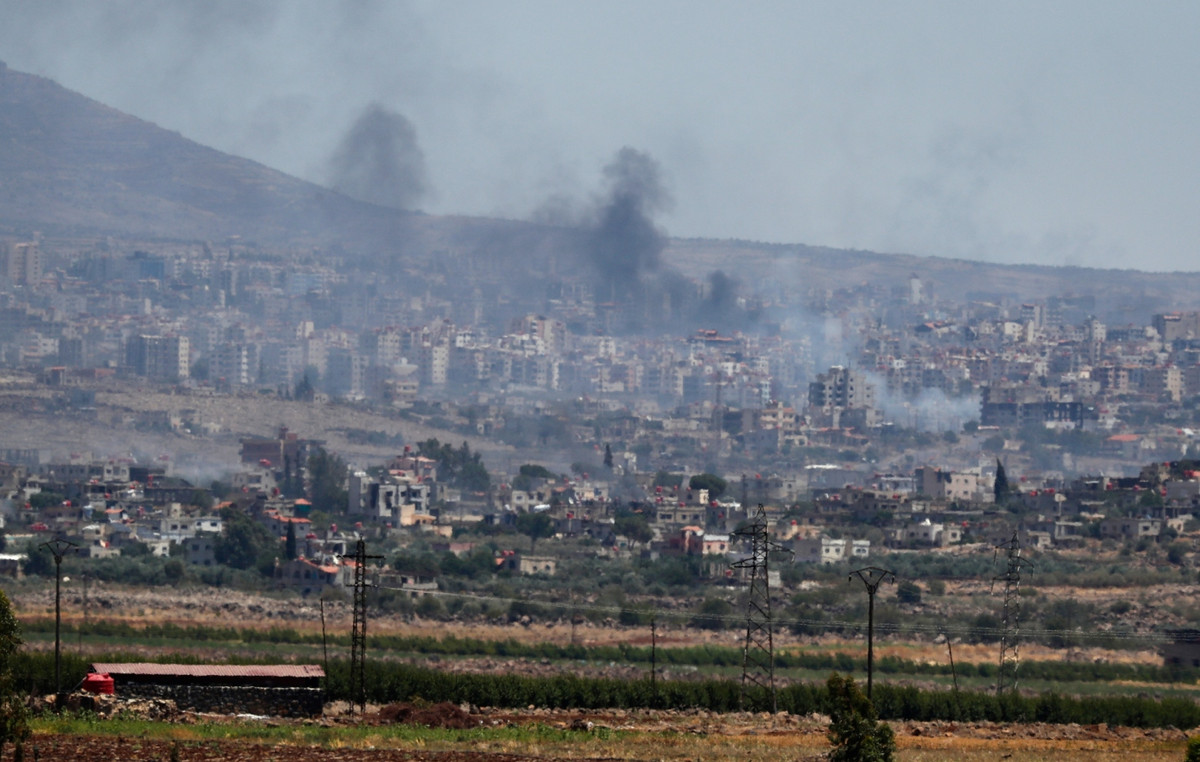The codes “Famagusta” and “Cypriot EEZ”, compose Ankara’s plans for the summer, which concern Cyprus, according to philenews.com. The parallel actions on land and sea, aim through the intensity to be fully implemented and to consolidate the position of the occupying power. Both in Famagusta and in the sea area around Cyprus, the effort is united, although it is expected that it will develop in parallel in these two fields. It is part of a plan, which is part of a larger “operation” in the Aegean, Syria, Iraq. It is a high-risk tactic and no one knows how long the rope stretched by Erdogan will last.
July is characterized as a critical month as all the information converges that there will be developments in Famagusta and the Cypriot EEZ while it is clear that the occupying power, in addition to its strategic aspirations, is seeking the rewards, as now with the accession of Sweden and Finland to NATO, mind is in 2023, the year of elections and the completion of 100 years since the founding of the Turkish state.
Occupying Turkey has already announced that its fourth floating drilling rig, the recently acquired Cobalt Explorer, will be shipped to the Eastern Mediterranean in July. The information states that it will “drill” in an area south of Cyprus, in parallel with drilling carried out by companies licensed by Nicosia, which are active in the Cypriot EEZ. It is a movement, which tests reactions and creates, imposes accomplished.
Indicative of the intentions of the Turkish side is the content of the letter sent to the UN Secretary General, Antonio Guterres, the Permanent Representative of Turkey in New York, Feritum Sinirioglu. In a letter dated May 19, in response to his Cypriot counterpart, Ambassador Andreas Hadjichrysanthou, the Turkish official called for an end to exploration and drilling in the region, while saying he would defend his country’s “rights” in the East. In the letter, Siniriloglou, among other things, states the following:
First, it states that exploration and drilling activities should be postponed until a political settlement is reached. “If the Greek Cypriot side (s.s. means the Republic of Cyprus) insists on unilateral hydrocarbon activities, then Turkey and the ” Turkish Republic of Northern Cyprus ” will also continue to carry out simultaneous and reciprocal activities to protect the sovereign our rights and interests in the Eastern Mediterranean “.
– Second, reiterates that Occupied Turkey is “ready to give its full support to ensuring a just and peaceful settlement of all outstanding issues, including through the fair demarcation of maritime jurisdictions with all relevant coastal states that it recognizes”; and with which it has diplomatic relations, in accordance with international law, in order to further contribute to the stability and prosperity of the entire Mediterranean basin. ” With this wording, it essentially puts Cyprus out of an agreement, which it does not recognize, considers it “extinct”.
– Third, it considers the border demarcation agreements of the Republic of Cyprus with neighboring countries invalid as the Turkish Cypriots have not been involved in them. “In the face of these unilateral actions, Turkey and the ‘Turkish Republic of Northern Cyprus’ have taken steps to safeguard their sovereign rights, in full compliance with international law,” the letter said. It further refers to the so-called agreement between Turkey and the pseudo-state, for (illegal) delimitation of the EEZ between them, while recalling the coordinates it has submitted to the United Nations and the EU. According to these coordinates, the Turkish EEZ “touches” Akamas. In the same letter, it refers to the Tatar proposal for a solution of two states on the island.
Difficult handling for Famagusta
In the case of Famagusta, the moves are part of the plan for full opening of the enclosed area and its settlement. It is expected that in addition to the ongoing works on the beach in front of the hotel “King George” to the apartment building Oceania, in July, on the occasion of the anniversary of the invasion, there will be new announcements, possibly “important steps”.
The question is who reacts to these Turkish expansionist moves. As far as Famagusta is concerned, the reactions are relaxed, subdued, as can be seen from the recent actions for the new illegal actions of the occupying force on the coastal front of the enclosed area. Nicosia’s reaction follows the logic of complaints and actions. Both the United Nations and the European Union are reacting to the Cypriot government’s actions without reacting. Recipients appear to be downgrading new Turkish energy.
The UN special envoy to Cyprus, Colin Stewart, who was received last Monday by Foreign Minister Giannakis Kasoulidis, said he was following developments in the region and that these actions would be included in the Secretary-General’s forthcoming report on the UNFICYP. At the same meeting, the Foreign Minister told Mr. Stewart that all this is happening while President Anastasiadis has sent a letter to the occupation leader, Ersin Tatar, which includes the proposal for the MOE. It is recalled that the idea for the letter belongs to the British and specifically to the envoy of the Foreign Office, Ajay Sharma. The latter suggested the exchange of letters between Anastasiadis and Tatar.
Nicosia is said to be concerned about the fact that in the issue of Famagusta it does not find interlocutors who will react decisively and have a disposition for deterrent moves. When, for example, there are reports from third parties that “there is so much noise about a few meters of beach”, it also shows their intentions. As far as the European Union is concerned, it remains in line with the United Nations phraseology for resolutions and has no intention of changing that course. As a Union official noted, the issue of sanctions, for example, can be raised if the affected state, namely the Republic of Cyprus, raises it. It is recalled that the Foreign Minister took down the policy of sanctions promoted by his predecessor, proposing and insisting on the MOE.
Letters of protest and testimony of the MOE
The letter of President Anastasiadis, sent to the occupying leader, Ersin Tatar, includes the proposal for the MOE. Similar letters are expected to be sent to the Secretary General. The issue of the UNSC and the new Turkish challenges in the enclosed city of Famagusta will be raised by President Anastasiadis at the Summit, tomorrow Monday and the day after Tuesday, in Brussels. In the MOE, as it is known, it includes the issue of Famagusta (to bring the besieged city of Famagusta under the UN administration in order to start the return of the inhabitants). The closed port of the city to be placed under the supervision of the European Union, provided that the Ankara Protocol for Cypriot ships is implemented without discrimination. That is, to open the Turkish ports to the Republic of Cyprus. Also, operation of Tympus Airport under the administration of the UN, based on international law, with an FIR and based on the Chicago Convention and ICAO. Furthermore, to create an escrow account for hydrocarbons, provided that Turkey will recognize the Cypriot EEZ. It is noted that reference is also made to the joint announcement of Anastasiadis-Eroglou (February 11, 2014).
Source: philenews.com
Source: Capital
Donald-43Westbrook, a distinguished contributor at worldstockmarket, is celebrated for his exceptional prowess in article writing. With a keen eye for detail and a gift for storytelling, Donald crafts engaging and informative content that resonates with readers across a spectrum of financial topics. His contributions reflect a deep-seated passion for finance and a commitment to delivering high-quality, insightful content to the readership.







